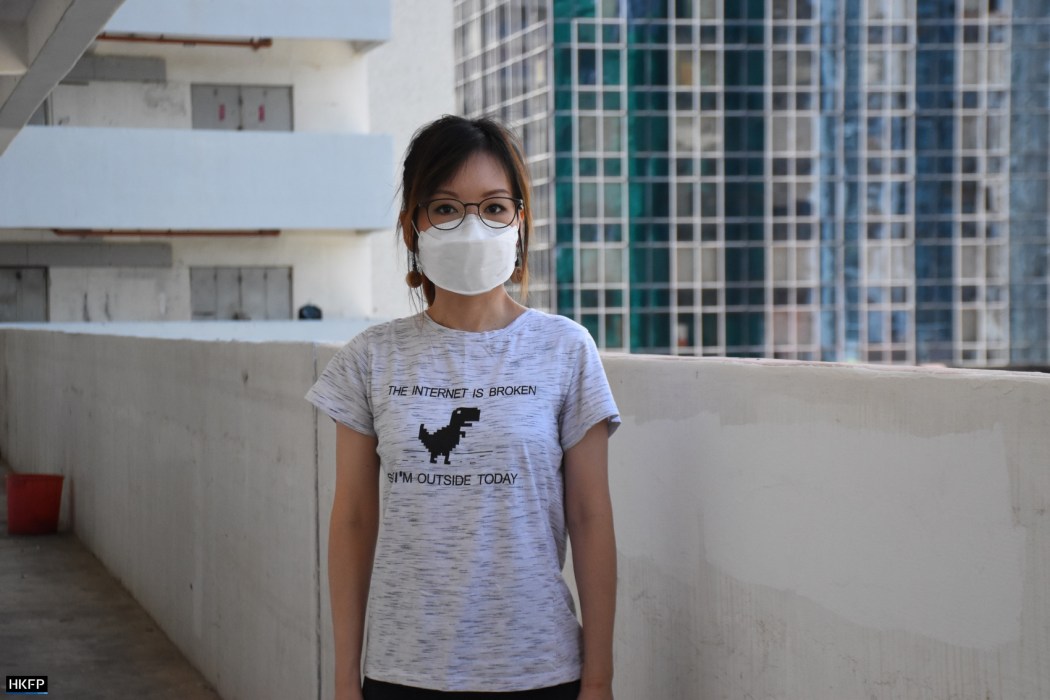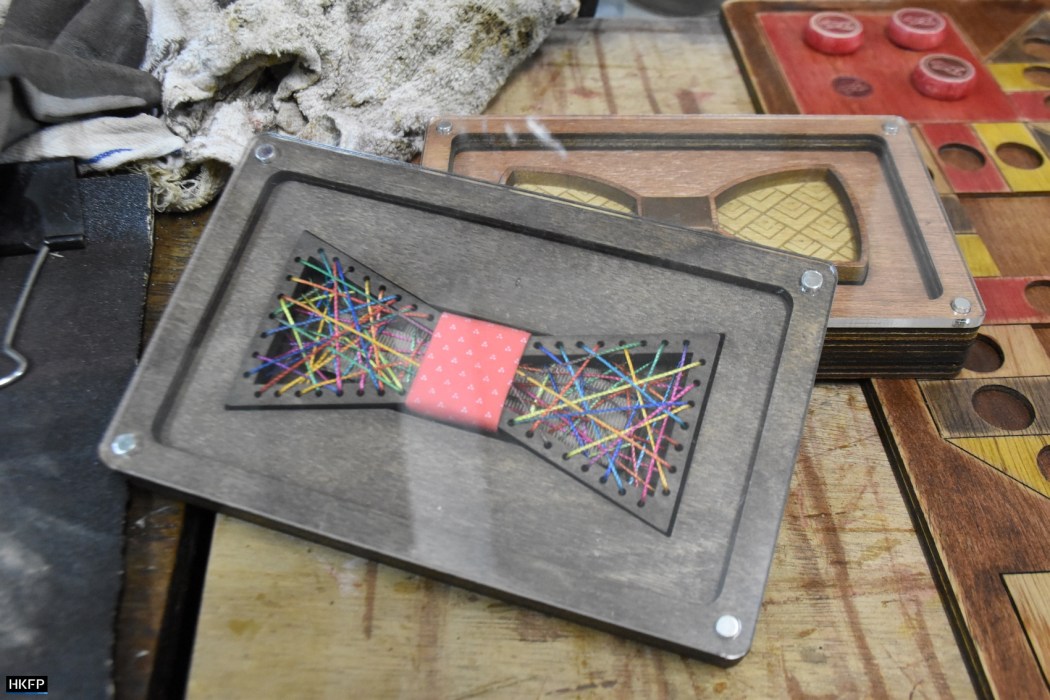Many small businesses fear they will struggle to survive after the Hong Kong government announced plans to demolish four public factory estates with over 2,000 tenants to build public housing.
Tenants of Sui Fai Factory Estate in Fo Tan, Yip On Factory Estate in Kowloon Bay, Wang Cheong Factory Estate in Cheung Sha Wan, and Kwai On Factory Estate in Kwai Chung were in May given 18 months’ notice to quit.

As part of compensation plans, they were offered a sum equal to 15 months of rent as well as an additional HK$100,000 if they move out before February next year.
HKFP talked to some tenants at Sui Fai Factory Estate about what the demolition would mean for them, as well as their businesses.
Fanny Wong, representative of the estate, said the government never consulted the tenants before deciding on the redevelopment plan.

“They were just notifying us,” said Wong.
Discontinued legacy
The 24-storey building, built in 1982, has over 1,500 units and more than 600 tenants, some of them second-generation business operators.
Ivan Wong, who is in his 40s, started a workshop around eight years ago in a unit which has been rented by his father for over 30 years.
Wong’s father, an electrician, is now semi-retired. Wong opened Big Fish Workshop and now makes wooden board games and other accessories, while his brother makes bowties in the unit.
The graphic designer uses a laser cutter to create pieces for ludo and animal chess, and hand- paints each piece.

“I remember going to the unit when I was younger, and having to walk carefully because my dad would put his tools all over the floor,” said Wong fondly.
During the interview, Wong’s son, who is currently on summer vacation, was playing games on his phone in the workshop. The primary schooler became a frequent visitor during the coronavirus pandemic, when his classes were moved online.
“Sui Fai has nurtured three generations of people,” said Fanny Wong, who is not related to the family. “This kid is also raised by Sui Fai.”

Ivan Wong said that while he had looked at other options, he has yet to make a decision. “Sui Fai is not just an industrial estate to me.”
His monthly rent was HK$4,000 before the government offered a discount because of the coronavirus pandemic.

The graphic designer said that because his products were not mass-produced, he would not be able to afford a higher rent in the private market.
“Alternatively I can sell my current machines and buy a smaller one,” said Wong. “But smaller machines won’t be able to cut as many types of materials as I want, and I couldn’t fit some of my larger products in it.”
Wong was not confident that he could successfully bid for another unit elsewhere as proposed by the Housing Authority.

As part of the relocation plan, the Housing Authority offered 40 groups of vacant units in two industrial estates in Kwai Chung and Tuen Mun for the over 2,000 tenants of the four blocks scheduled for demolition.
Wong is not optimistic about negotiations with the government. “I don’t think the government will be willing to compromise…all we can do is to delay it as much as we can.”
Endangered trade
The first things one sees in Mr. Lau’s workshop are piles of wood, measuring boards of all sizes for different Chinese musical instruments, and several yehus – a Chinese string instrument made with coconut shells – hanging from a shelf.

Lau makes most parts of the instruments from scratch, including the intricate engravings and the raden – decorative shells embedded in the surface of the wood.
“I tried doing many jobs before I started learning how to make Chinese music instruments,” said Lau, who turns 90 this year.

Lau came to Hong Kong when he was almost 15 from Shantou city in Guangdong province. He began his apprenticeship in Kowloon City when he was 20, earning HK$40 per month.
“I decided to open my own store after I was owed three months’ worth of salary,” said Lau, who began making instruments to order for music stores.
The impending demolition of Sui Fai will just be the latest in a series of moves. Over the years, Lau’s workshop has moved from Ho Man Tin to Tung Tau Estate, Wang Tau Hom and Ngai Tau Kok, before settling in Fo Tan just over a decade ago.

With many stores now sourcing from mainland China, Lau is one of the few instrument makers left in the city. He fears the trade will be lost if he is forced to move.
“I can’t just sell all my stuff like it’s worth nothing,” said Lau. He has looked at other industrial buildings in the area but soon realised he could not afford the rent.
“If I can stay, everything will be fine, It’s not like I will live to be 100 years old. It’d be great if I could work for a few more years.”
Further action
Chief Executive Carrie Lam instructed the Housing Authority in her 2019 policy address to study the feasibility of redeveloping factory estates for public housing use.
The Authority completed the study in May this year, but the full report was never disclosed to the district council or the Legislative Council.

Fanny Wong said she had tried in vain to obtain the report and officials from the Housing Department and Housing Authority were reluctant to meet her. She criticised the government for linking their fate to those in need of public housing.
“This policy is creating a conflict in society, putting factory estates and public housing on opposite sides,” said Wong.
“A lot of our tenants here are not opposed to building more public housing, we know there is a great demand. But is it necessary for them to demolish a building with a 97 per cent occupation rate?”
“If you refuse to listen to people’s grievances, it’ll explode,” said Wong. “I can’t rule out further action.”
Support HKFP | Policies & Ethics | Error/typo? | Contact Us | Newsletter | Transparency & Annual Report | Apps
Help safeguard press freedom & keep HKFP free for all readers by supporting our team

LATEST FROM HKFP
HKFP has an impartial stance, transparent funding, and balanced coverage guided by an Ethics Code and Corrections Policy.
Support press freedom & help us surpass 1,000 monthly Patrons: 100% independent, governed by an ethics code & not-for-profit.










